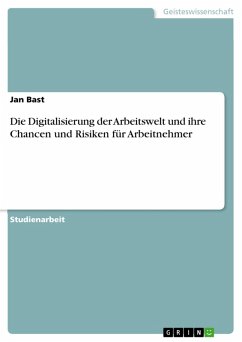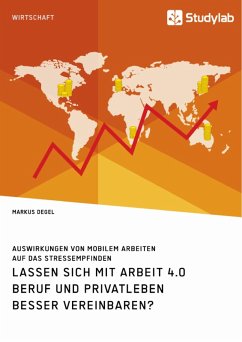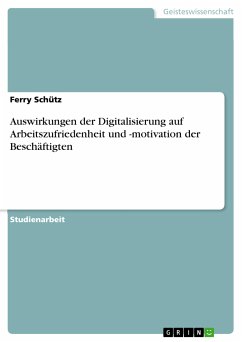Bachelor Thesis from the year 2015 in the subject Psychology - Work, Business, Organisation, grade: 1.3, University of Applied Management, language: English, abstract: This Bachelor Thesis presents a summary of empirical findings of the opportunities of virtual coaching and its areas of application. Thereby it outlines its contribution to the coaching industry in today's workplace and society. Several fields of usage as well as the aspects important to ensure a successful proceeding, requirements from managers regarding this topic as well as changes virtual coaching brings with it in the educational sector, have been analyzed. Data collected in this paper origin from recent research in the North American and Australian literature and business magazines as well as European sources. Additionally, the research paper contains valuable insights of four experts who are virtual coaches and therefore adds first-hand current information and experience about the topic and its applications. This qualitative data analysis was done according to Mayring. The first research question investigates whether the substitution of traditional coaching with virtual coaching is possible or not. Secondly, it is examined if virtual coaching adds more value to traditional coaching or is more valuable by itself. Whether or not virtual coaching holds a promising future was analyzed in order to answer the third research question. The findings of the virtual coaching format indicate a promising future as an important part of the coaching process to the coaching industry. They also show that virtual coaching brings huge benefits regarding the cost, time and value efficiency factor. Furthermore, it is a more sustainable and intensive option than traditional coaching. Nevertheless, the complete substitution of traditional coaching should not be reasoned. Virtual coaching brings the world together and offers new opportunities for both coach and coachee in terms of flexibility, freedom, the range of options and instant access to the coaching service, which has not been known to this extent in traditional coaching. This relatively new field is yet to emerge and still requires a lot more research in the future.
Dieser Download kann aus rechtlichen Gründen nur mit Rechnungsadresse in A, B, BG, CY, CZ, D, DK, EW, E, FIN, F, GR, HR, H, IRL, I, LT, L, LR, M, NL, PL, P, R, S, SLO, SK ausgeliefert werden.









